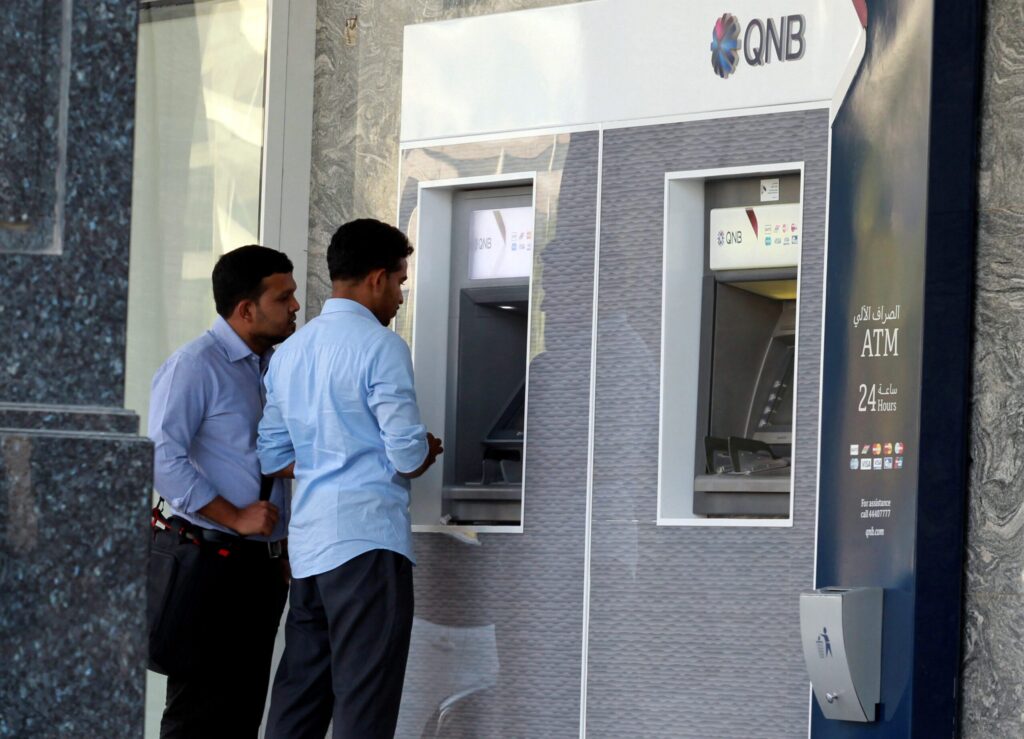Non-performing loans may increase
Qatar most vulnerable
Likely to hit profits, not solvency
US President Donald Trump’s imposition of additional import tariffs will trouble GCC banks, despite the bloc’s meagre non-oil exports to the United States, according to analysts.
Trump’s tariff strategy, targeted principally at China but worldwide in scope, has roiled global equity markets, sent the dollar tumbling and exacerbated oil price declines.
As such, “the indirect effects of the intensifying trade tensions could be significant”, an S&P Global Ratings report has warned.
Brent crude is down around 9 percent this month at almost $68 a barrel as of April 17. This month, it plunged below $60 for the first time since early 2021.
“A significant reduction in oil prices could impinge on (Gulf) government spending and economic sentiment and lead to an increase in (bank sector) non-performing loans (NPL),” the S&P report stated. “The most imminent threats are market volatility and investor risk aversion.”
GCC banks appear well positioned to deal with the dangers emerging from escalating tariffs. Their investment portfolios account for 20-25 percent of their assets, S&P estimated. Most of these investments comprise “high quality” bonds and sukuk, with riskier investments forming a much smaller component, the ratings agency wrote.
“Losses are unlikely to materialise unless banks need to liquidate some investments to deal with capital outflows, which we don’t expect to happen,” the report stated.
Capital outflows refer to customers withdrawing money from accounts. Deposits are the main means through which banks fund their lending.
In terms of potential capital outflows, Qatar is the most vulnerable within the six-country GCC, as its banks have the highest percentage of non-resident deposits, said Mohamed Abu Basha, head of macroeconomic analysis at EFG Hermes in Cairo.
As of February, non-resident deposits at Qatari banks amounted to QAR201.5 billion ($55.4 billion), or 19.1 percent of the sector’s total deposits.
A Saudi Arabia-led embargo on Qatar from 2017 to 2021 led the kingdom and its ally the UAE to withdraw deposits from the country’s banks. In response, Qatar’s sovereign wealth fund repatriated money from abroad and deposited sizeable amounts with domestic banks to ease the sector’s funding constraints.
“If there were renewed capital outflows, the fund would do similar again, so although in theory Qatar appears vulnerable to outflows these would be manageable thanks to the country’s strong balance sheet,” said Abu Basha.
In the UAE, non-resident deposits represent 7 percent of domestic banks’ total deposits, according to central bank data, making it the second-most reliant on such deposits in the Gulf.
“UAE banks have excellent liquidity, so a reduction in non-resident deposits wouldn’t be a big issue,” Abu Basha said.
Saudi Arabian banks appear comfortable, but “if they are unable to continue to tap the capital markets, their capacity to continue financing Vision 2030 projects might diminish”, S&P wrote.
The average non-performing loan ratio among the Gulf’s 45 biggest banks was 2.9 percent in 2024. Lenders have set aside money – known as provisions – amounting to 150 percent of the value of these NPLs.
S&P tested two theoretical scenarios to investigate the probable impact of increased loan defaults. In the first, banks’ NPL ratios rose to at least 5 percent. This would result in 16 of the top 45 banks making net annual losses totalling $5 billion this year.
In a second, graver scenario, in which NPLs rose to at least 7 percent, this could cause 26 banks to suffer combined losses of $30 billion – less than half the sector’s aggregate profits of $60 billion last year.
“This means that even in our worst-case scenario, we still expect the shock to affect banks’ profitability rather than their solvency,” S&P said.
Register now: It’s easy and free
AGBI registered members can access even more of our unique analysis and perspective on business and economics in the Middle East.
Why sign uP
Exclusive weekly email from our editor-in-chief
Personalised weekly emails for your preferred industry sectors
Read and download our insight packed white papers
Access to our mobile app
Prioritised access to live events
Already registered? Sign in
I’ll register later



